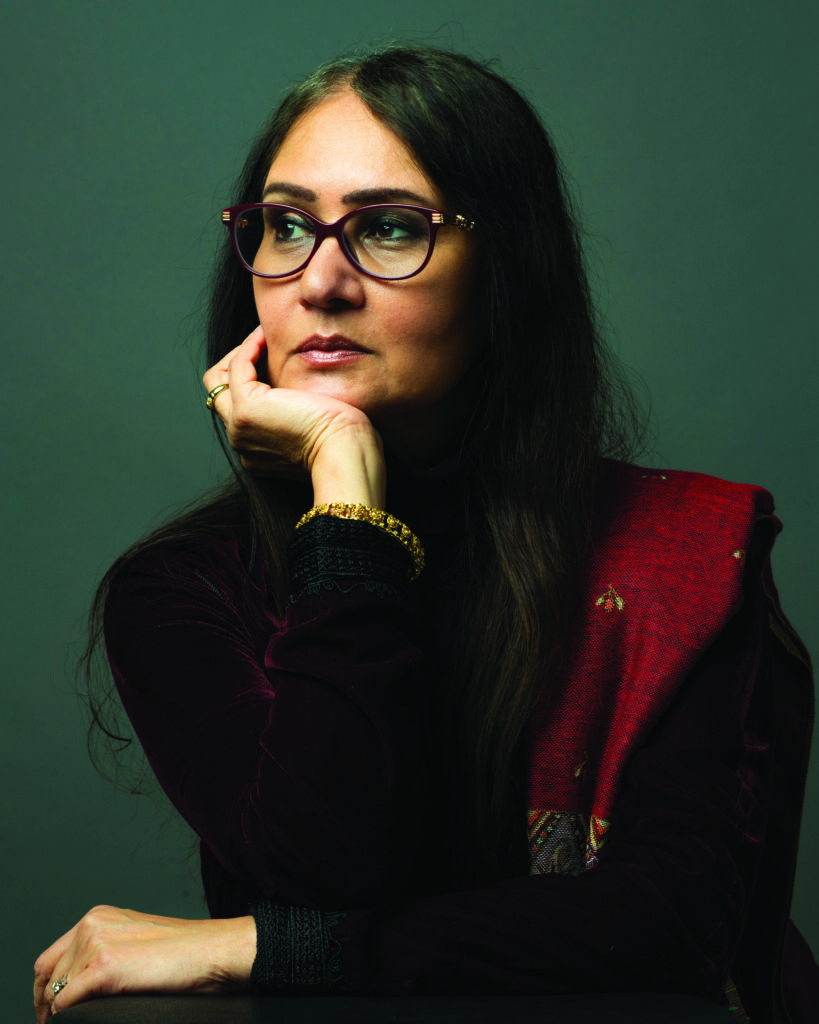At the last Trou d’Eau Douce Book Festival, some apprentice authors were pinching their hands to make sure they were looking at novelist Ananda Devi in the flesh. Simple and accessible, this frail-looking woman spoke to them with a humility that made you think… Maurice is extraordinarily lucky to have given birth to this great lady of contemporary literature.
Dominique Bellier
A precocious and prolific writer, Ananda Devi has been quietly piling up her fifty-year love affair with literature. Freed in recent years from her professional contingencies as an interpreter in Geneva, she is more devoted than ever to it, multiplying experiences beyond her usual output.
Having experienced the dazzling power of her writing and her ability to describe injustice with poetry and finesse, without hurting the reader’s feelings, we’re still amazed to meet such a gentle, impeccably dressed woman, a sort of wise child whose only awkwardness is a form of shyness. This novelist, who has not stopped publishing since she was a teenager, admits she still wonders whether she deserves the honors she has received!
The start of the 2023 literary season brought her two new distinctions for her body of work: the Prix de la langue française de Brive, followed by the Neustadt International Prize for Literature 2024, in the United States, reinforcing her international reputation, even though her texts have been studied in American and Indian universities for over twenty years.
Boundless empathy
This shyness has never stopped her from taking the microphone to defend literature, her books and those of others. For her, writing is a space of absolute freedom. In short, Ananda Devi is a committed and feminist artist, not only through her fiction, but also through the positions she regularly takes in the press.
At the time we contacted her, she was working on a text about Lyon’s terrible Montluc prison, which held a number of resistance fighters during the Occupation, before imprisoning former Nazis and then Algerian independence fighters. The poetry collection Ceux du large is dedicated to the refugees and shipwrecked people of the Mediterranean. We should also mention the depth of her reflections on writing, which she develops in Deux malles et une marmite, as well as in her tribute to the American poet Sylvia Platz.
In Le rire des déesses, published in 2022, she recounts in the style of an epic the flamboyant rebellion of Indian prostitutes who take revenge on their tormentors. Her latest book, Le Jour des caméléons, is the most political of all. Here, we are struck by the direct and powerful style with which she pillories today’s society. This apocalyptic novel uses Mauritius as a metaphor for a world on the brink of collapse. But in her ordinary characters, touching in their weaknesses and qualities, there is hope of renewal.
